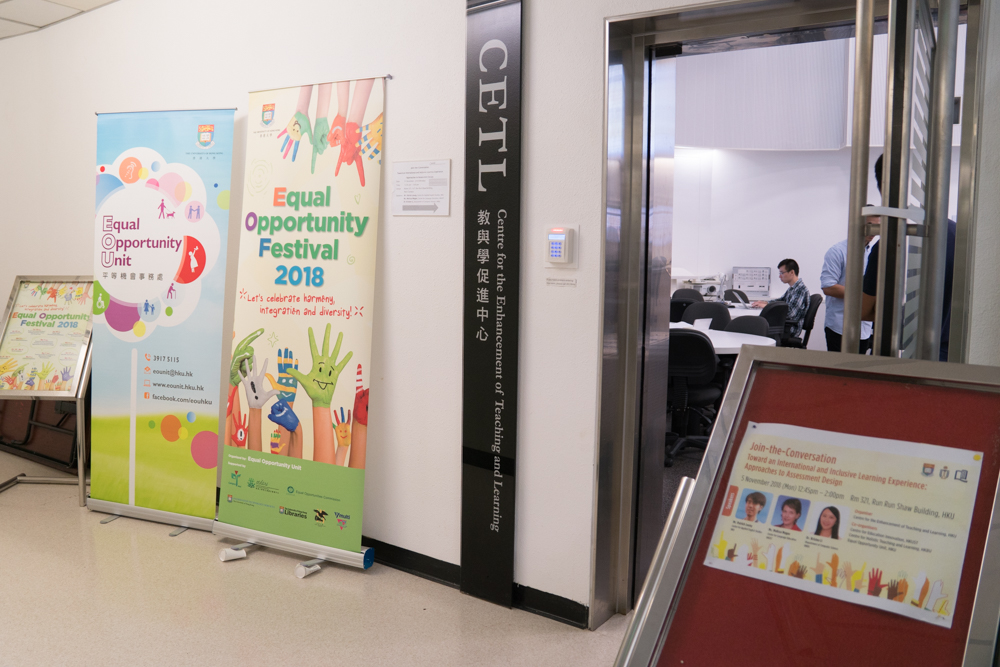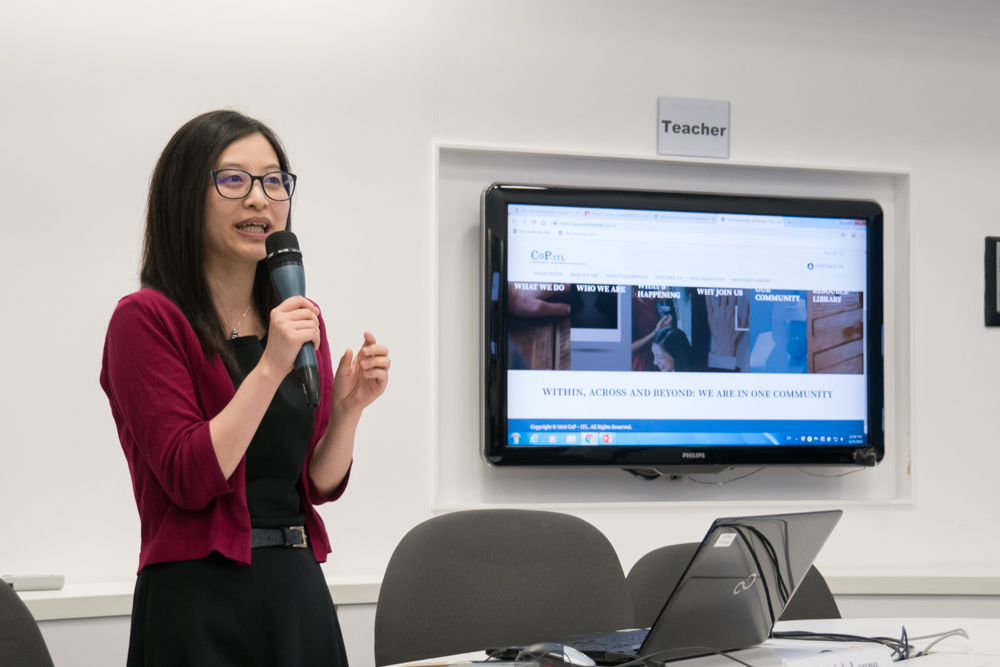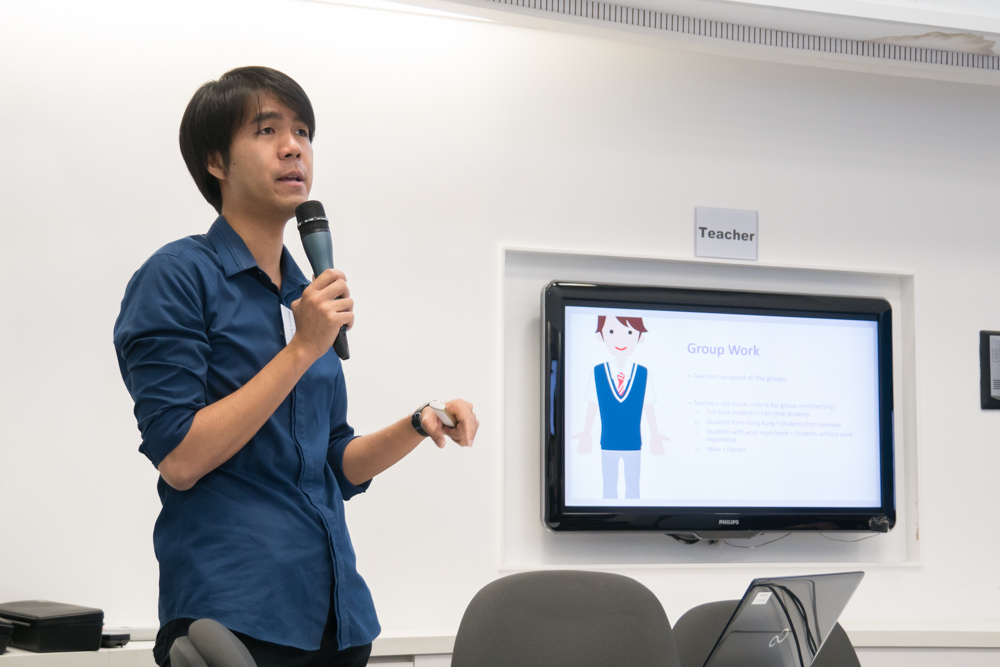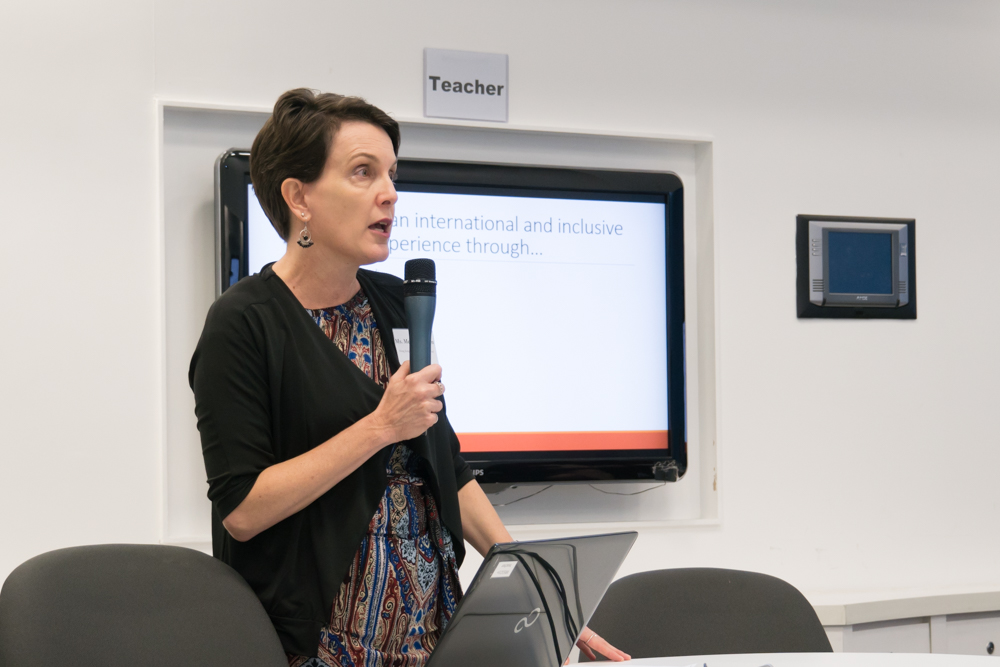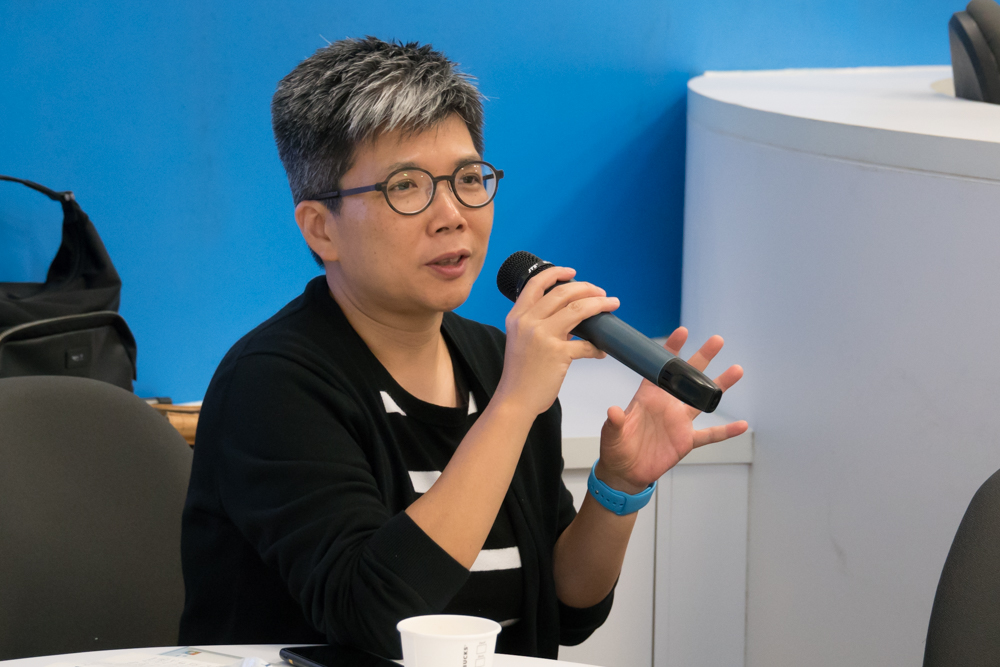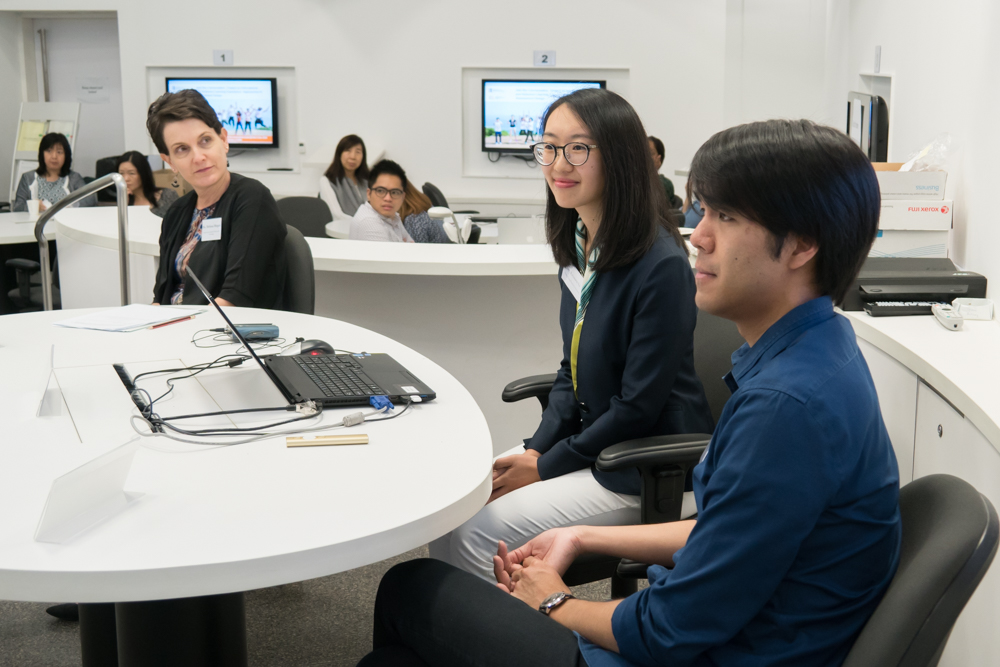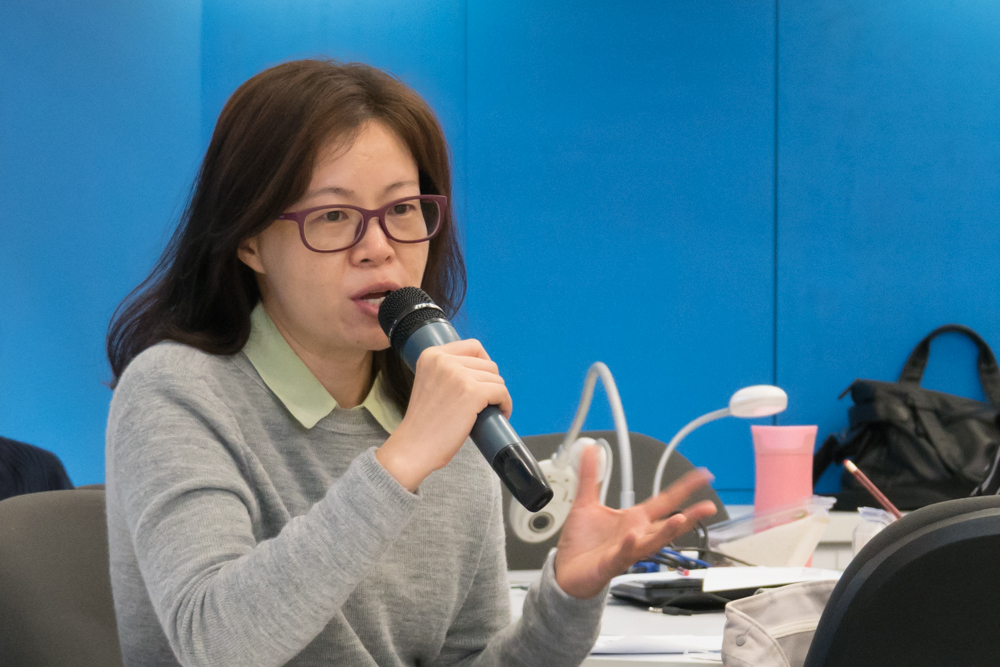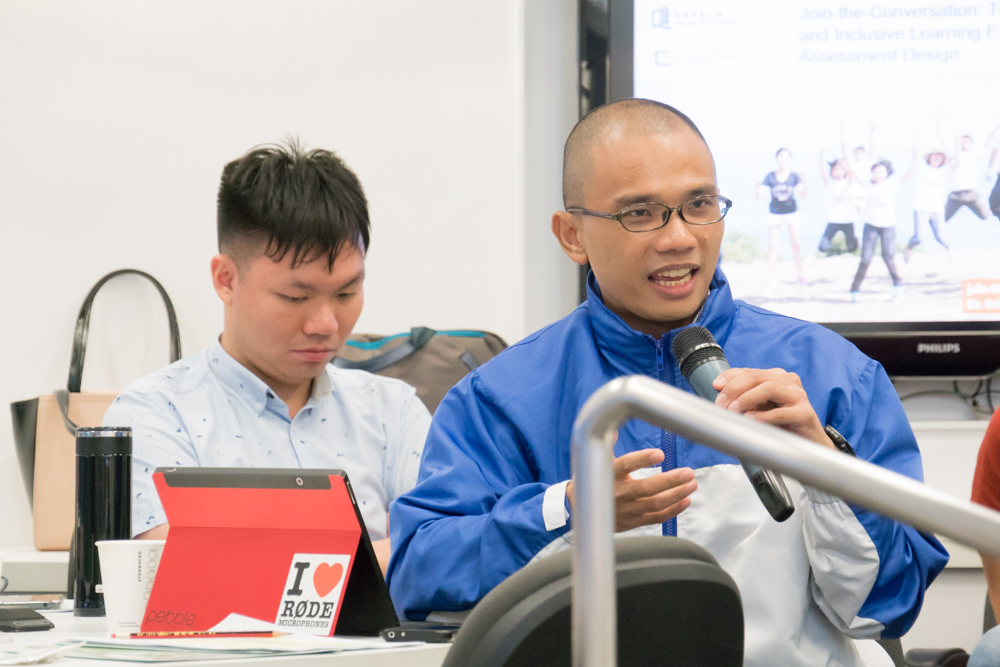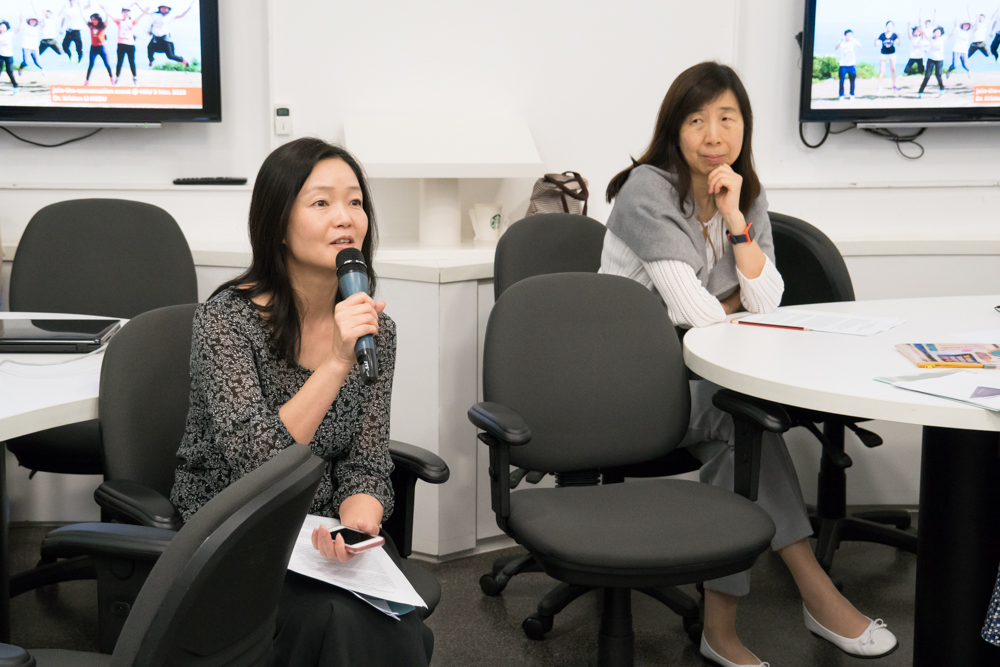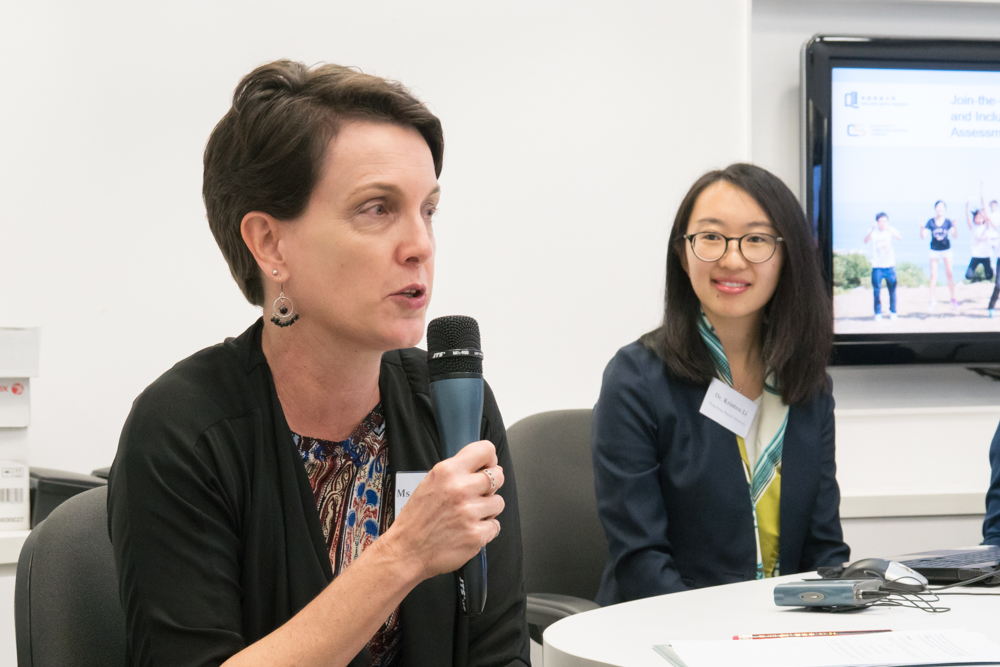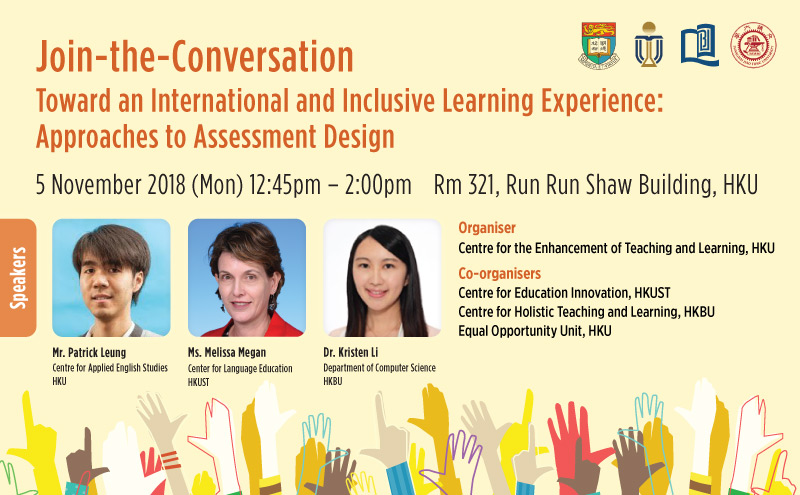
Organised by Centre for the Enhancement of Teaching and Learning (CETL)
Details of the workshop:
Date : 5 November 2018 (Monday)
Time : 12:45pm - 2:00pm
Venue : Room 321, 3/F, Run Run Shaw Building (Main Campus), HKU
Speaker : Mr. Patrick Leung (HKU), Ms. Melissa Megan (HKUST), Dr. Kristen Li (HKBU)
Facilitator : Dr. Tracy Zou (HKU), Dr. Beatrice Chu (HKUST), Dr. Lisa Law (HKBU)
Organiser : Centre for the Enhancement of Teaching and Learning, HKU
Co-organisers : Center for Education Innovation, HKUST; Centre for Holistic Teaching and Learning, HKBU; Equal Opportunity Unit, HKU
Abstract
The ultimate purpose for internationalisation of the curriculum is to enhance students’ overall learning experience (Leask, 2015). This will not be achieved without taking aspects of learning, teaching and assessment into consideration. In particular, many students seem to see assessment as the sole purpose of learning and tend to focus on what will be tested. Working on assessment design, therefore, will have a significant impact on student learning. In this Join-the-Conversation event, colleagues from HKU, HKUST, and HKUST will share with us their wise practices on assessment design in internationalisation of teaching and learning. Following discussion of these wise practices, participants will identify possible approaches to adapting pedagogical strategies to meet the needs of a diverse group, and reflect on how assessment design becomes a critical step to an equal and inclusive learning environment for students at all levels.
About the speakers
Mr. Patrick Leung is Assistant Lecturer at the Centre for Applied English Studies at HKU teaching English for academic and specific purposes courses. Over his years of teaching, he has worked with students from different cultural backgrounds and tried out different practices and strategies to help make student learning experience more international and inclusive.
Ms. Melissa Megan is Senior Lecturer in the Center for Language Education at HKUST where she has worked since 1999. She has taught many of the courses offered by the Center. She is currently coordinator of the two biggest courses in the Center – the Common Core English courses. Melissa grew up and started her teaching career in Australia. In the early 1990’s she was part of a taskforce for the implementation of the NSW Department of School Education’s Multicultural Education Policy, and she lectured on this policy and anti-racism education at the University of New England, NSW. She now calls Hong Kong home but also regularly visits Cambodia where she helps manage the education programmes of an NGO in Siem Reap.
Dr. Kristen Li is Lecturer and Associate Master Programme Director at HKBU. She holds PHD degree in Computer Science. Dr. Li is a professional Design Thinking facilitator. She is actively promoting Internationalisation in Education, including coordinating exchange/internship programmes and designing curriculum which enhance students’ global competitiveness.
Welcome back, members and fellow colleagues! This academic year, our Join-the-Conversation event focuses on how to promote international and inclusive teaching and learning on campus and beyond. The event was held on 5 November 2018 (Monday) at HKU with three speakers and more than thirty participants across different institutions.
Our first speaker, Mr. Patrick Leung from the Centre for Applied English Studies, HKU, elaborated the approaches to assessment design on his undergraduate English course. In terms of group assignment, Patrick asked students to work on a small-scale research project which involved five steps: (1) generating a research topic, (2) collecting data, (3) analysing findings, (4) compiling a final report and (5) doing a presentation. In particular, steps 1 to 3 were non-graded items and could be either done in groups or individually while steps 4 and 5 had to be assessed on an individual basis. In such a way, Patrick attempted to make group assessment fair for every student and suitable for students with different learning styles.
Our second speaker, Ms. Melissa Megan from the Center for Language Education, HKUST, explicated how the two large courses, English for University Studies I and English for University Studies II, she coordinated helped create an international and inclusive classroom for students. In terms of themes and materials, students were introduced to a range of global topics, such as people, passion and possibilities, beauty and happiness. Melissa then brought in worldwide case studies and news articles to develop students’ perspective taking and analytical skills. In terms of assessment, students were required to write an argumentative essay with their own theses; compare and contrast the ways in which various global issues were viewed and discussed; and formulate their own opinion.
Our third speaker, Dr. Kristen Li from the Department of Computer Science, HKBU, shared with us two international and inclusive projects that she has undertaken. Collaborating with overseas partners from North America, Europe and North East Asia, participating students in this Joint Design Workshop were asked to form multinational, multicultural and multidisciplinary groups. The groups had to first identify general social problems of their own cities; then conduct some field trips in which the partner institutions were located; and finally generate solutions to the social issues identified in Hong Kong. Besides this, Kristen also worked on a social enterprise project called Barrier – Free School in order to create an inclusive environment for physically challenged students on campus. She hosted regular meetings with the students and thoughtfully adjusted the test format to cater for the students with special needs.
Some issues pertinent to international and inclusive teaching and learning were raised and discussed with speakers, facilitators and the floor, for example:
- Some audiences were interested in how students responded to the options of working individually and in groups.
The comment was that most students still chose to work in groups so as to get more collaborative opportunities while sharing the workload. - Some asked about how to prepare other students to work with students with physical challenges?
The panel commented that some meetings and briefings could be arranged to make students aware of the needs of being inclusive. Another suggestion from the panel is to make use of online meeting tools which did not require students with physical challenges to travel too much. - Some audiences were curious about how feedback from students and colleagues was used?
The panel mentioned having frequent and regular feedback from students and colleagues is very helpful. For example, one panel member said that students were once given one set question for the argumentative essay in her language class. After considering student feedback, the new practice is to allow them to pick their own topic. Collecting feedback from colleagues would be helpful for course leaders to understand better the workload of colleagues.
Towards the end of the event, Dr. Tracy Zou remarked that CoP – ITL welcomed interested and likeminded teachers to sign up for the community of practice (https://prog.talic.hku.hk/cop-itl/).
Contact Information
Should you have any enquiries, please feel free to contact Joza Kot by email at jozakot@hku.hk.




